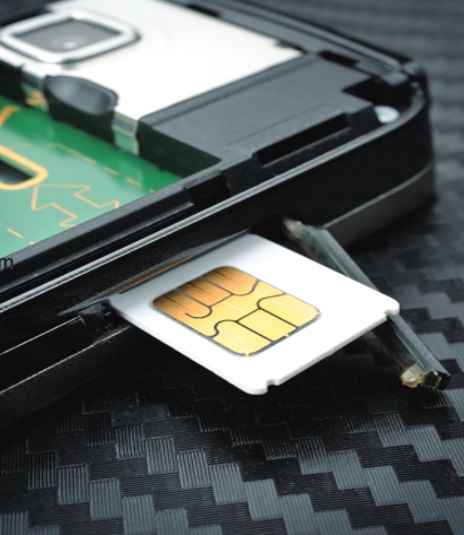Why Choose Dilendorf Law Firm?
Our team is uniquely positioned to pursue claims against financial institutions because, ultimately, financial institutions are liable for thefts, irrespective of whether the victim became the subject of a phishing attack or SIM swap.
We have successfully handled over 100 arbitration cases against various financial institutions, demonstrating our extensive experience in federal and state cybersecurity regulations and consumer protection laws.
Mandatory Binding Arbitrations:
In many cases, disputes involving cyber attacks and stolen funds are subject to mandatory binding arbitrations under the terms and conditions that users sign with financial institutions.
Our legal team is well-versed in the strategies required when arbitrating consumer claims, ensuring that your interests are vigorously defended.
Shifting the Burden of Proof:
Under applicable law, the burden of proof rests on the bank to demonstrate that a transaction was authorized. However, it becomes increasingly challenging for banks to prove authorization when hackers compromise user accounts and transfer funds without the customer’s consent.
In these instances of account compromise, between 5 to 12 red flags are often raised, indicating that the transfer is fraudulent. These red flags should have triggered the bank’s manual review of transactions. Consequently, it becomes exceedingly difficult for banks to establish that transactions were authorized when they missed these red flags and processed the transfer.
By choosing Dilendorf Law Firm, you gain a dedicated legal partner that not only understands the complexities of cybersecurity and consumer protection laws but also excels in advocating for your rights in arbitration proceedings.
Common Bank Frauds That Can Affect Consumers Include:

- Phishing Scams: Fraudsters send fake emails or messages posing as a bank to obtain personal information such as account numbers, passwords, and Social Security numbers
- Account Takeover: Hackers gain unauthorized access to a consumer’s bank account and make unauthorized withdrawals or transfers
- Check Fraud: Criminals alter or counterfeit checks to withdraw money from a victim’s account without their knowledge
- Mobile Banking Fraud: Malicious apps or phishing texts trick users into revealing their login credentials for mobile banking apps.
- Online Shopping Fraud: Fraudulent online stores or sellers may steal payment information or fail to deliver purchased items.
- Wire Transfer Fraud/Scams: Criminals pose as trusted contacts or businesses and request victims to wire money, often to foreign accounts, for fake reasons.
- Wire Fraud Scams: The elements of wire fraud under Section 1343 directly parallel those of the mail fraud statute, but require the use of an interstate telephone call or electronic communication made in furtherance of the scheme.
Contact Us:
Contact Dilendorf Law Firm for a consultation if you have been a victim of bank fraud or theft at (212) 457-9797 or via email info@dilendorf.com to schedule a consultation, discuss your legal needs, and explore how we can advocate for your rights and interests.
List of Regional Banks in the US That Could Be Vulnerable to Cyber Attacks and Scams:
We stay up to date and track cases involving phishing attacks and sim swap affecting major banks:
Having money stolen directly from your bank account can be stressful by itself, but two Citibank customers tell NBC 5 Responds that once that happened to them, their bank didn’t have their back. They said the bank even blamed them for the crimes and initially refused to refund what was lost.
It’s been a tough couple of years for one North Side man. First, the pandemic shut down his business. Then, when he most needed money, a thief went to a Citibank branch in the south suburbs and stole thousands from his account.
Citibank, one of the biggest 4 banks in the USA, discovered a data breach about a month ago that is said to have affected over 200,000 credit card customers.
Citibank said in a recent statement: “During routine monitoring, we recently discovered unauthorized access to Citi’s account online,” said Citigroup, in a prepared statement. “A limited number — roughly 1% – of Citi bankcard customers’ accounting information (such as name, account number and contact information including email address) was viewed.”
SAN JOSE, Calif. (KGO) — Seven Citibank customers say a combined $600,000 disappeared from their bank accounts. For some, that money represents most of their life savings.
Hackers were able to acquire over 350K customer’s personal data from Citi’s web application. Citi managed over 21M customers when the breach happened. This breach exposed just over 1% of the customer data.
It’s the kind of nightmare most will only read about, but for Jacqueline Berman of NY, it’s actually happening. Over a month ago, her phone was hacked. While she handled the issue with T.Mobile quickly, her bank info ended up being compromised and a hacker was able to get into her Citibank account to assign a new payee. Within minutes, her entire life savings was emptied out.
Several local people say they’ve lost tens of thousands of dollars thanks to fraud on their bank accounts. And they’re not alone. Across the country, scams are on the rise. But unlike credit card fraud where you can usually get your money refunded, these families say they’re furious that their bank won’t help them get their money back.
Six times in 17 days, a Rockland County man says, his JPMorgan Chase bank accounts were hacked and $225,000 were stolen, but Chase has refused to reimburse him for the last $44,000.
David Sabri accused Chase of violating the Electronic Funds Transfer Act, in a March 28 complaint filed in U.S. District Court, White Plains, and is demanding treble damages for his losses.
A cyberattack this summer on JPMorgan Chase compromised the accounts of 76 million households and seven million small businesses, a tally that dwarfs previous estimates by the bank and puts the intrusion among the largest ever.
In one week, the thieves conducted six wire transfers of various amounts, with one as large as $48,000.
While Moss filed a police report and contacted Chase Bank to resolve the issue, after a five-week review, the bank denied her claim and found her at fault.
Imagine money being deducted from your bank account that you didn’t authorize, and you can’t get it back. That’s exactly what happened to a Henderson man after $1,700 was drained from his account. “I got a notice on my phone saying that I had a low balance on my account and when I checked my account, it was $70 in the account, but the night before was $1,770,” Marcus Johnson said.
Hackers have released a database that allegedly contains account details of over 4 million Bank of America customers. The leaked data contains sensitive information such as account balances and card CVV codes.
Picture this: a single mom in Norridge learns someone somehow transferred more than $1,700 from her bank account. Nicole Saez said she got the email notifications last month while she was cleaning her son’s room. “I had nothing left. I think there was $4 left in my savings,” she said.
In February, FinCEN issued an alert indicating that there were 680,000 cases of possible check fraud reported last year, up from 350,000 in 2021, which itself was a 23% increase over reports in 2020. Because FinCEN sees no indication that check fraud is going to subside anytime soon, the agency cautioned financial institutions to be vigilant and, along with the United States Postal Inspection Service (USPIS), warned that the main source of stolen checks is the U.S. mail.
Unemployed workers received their Employment Development Department benefits on Bank of America debit cards — but they were targets of fraudsters who drained millions of dollars from workers’ accounts. Many could not get reimbursed. This year, BofA was fined $225 million for automatically denying their claims.











































